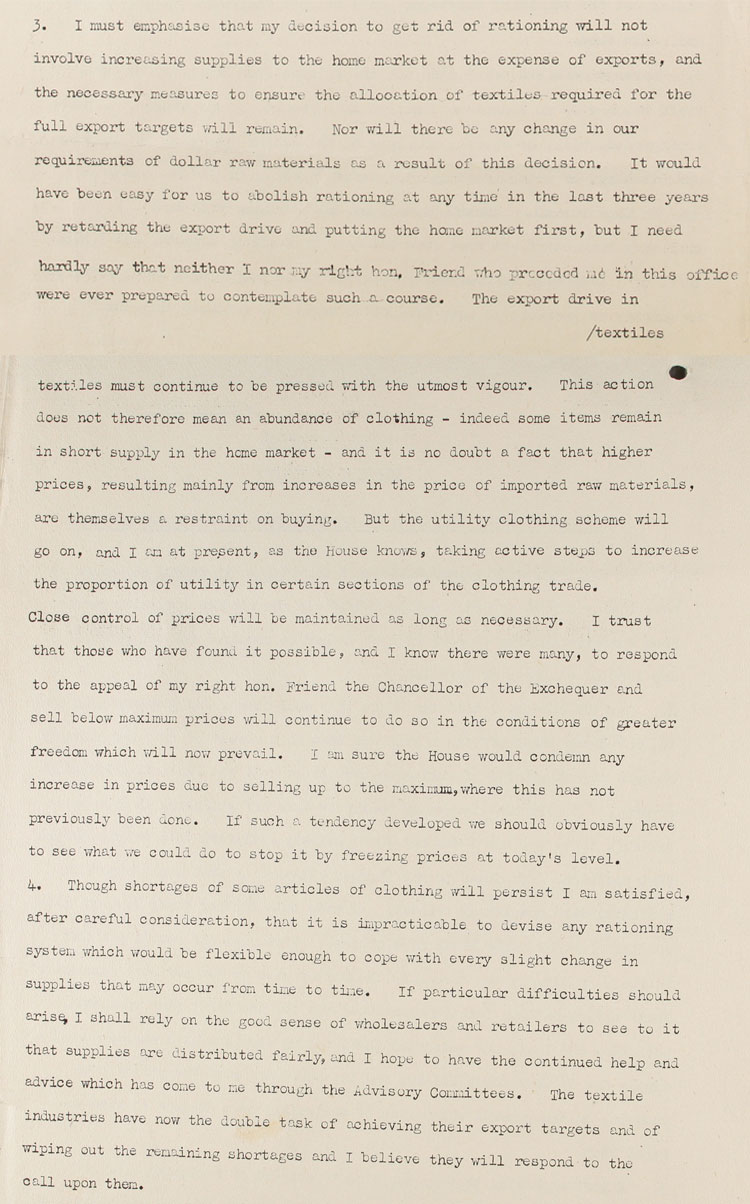
Extract from statement to the House of Commons by the President of the Board of Trade on clothes rationing, 14th March, 1949 (BT 64/4272)
3. I must emphasise that my decision to get rid of rationing will not involve increasing supplies to the home market at the expense of exports, and the necessary measures to ensure the allocation of textiles required for the full export targets will remain. Nor will there be any change in our requirements of dollar raw materials as a result of this decision. It would have been easy for us to abolish rationing at any time in the last three years by retarding the export drive and putting the home market first, but I need hardly say that neither I nor my right hon. Friend who proceeded me in this office were ever prepared to contemplate such a course. The export drive in textiles must continue to be pressed with the utmost vigour. This action does not therefore mean an abundance of clothing- indeed some items remain in short supply in the home market- and it is no doubt a fact that higher prices, resulting mainly from increases in the price of imported raw materials, are themselves a restraint on buying. But the utility clothing scheme will go on, and I am at present, as the House knows, taking active steps to increase the proportion of utility in certain sections of the clothing trade. Close control of prices will be maintained as long as necessary. I trust that those who have found it possible, and I know there were many, to respond to the appeal of my right hon. Friend the Chancellor and sell below maximum process will continue to do so in the conditions of greater freedom which will now prevail. I am sure the House will condemn any increase in prices due to the selling up to the maximum, where this has not previously been done. If such a tendency developed we should obviously have to see what we could do to stop it by freezing prices at today’s level.
4. Though shortages of some articles will persist I am satisfied, after careful consideration that it is impracticable to devise any rationing system which would be flexible enough to cope with every slight change in supplies that may occur from time to time. If particular difficulties should arise, I shall rely on the good sense of wholesalers and retailers to see to it that supplies are distributed fairly, and I hope to have the continued help and advice which has come to me through the Advisory Committees. The textile industries have now the double task of achieving their export targets and of wiping out the remaining shortages and I believe they will respond to the call upon them.
